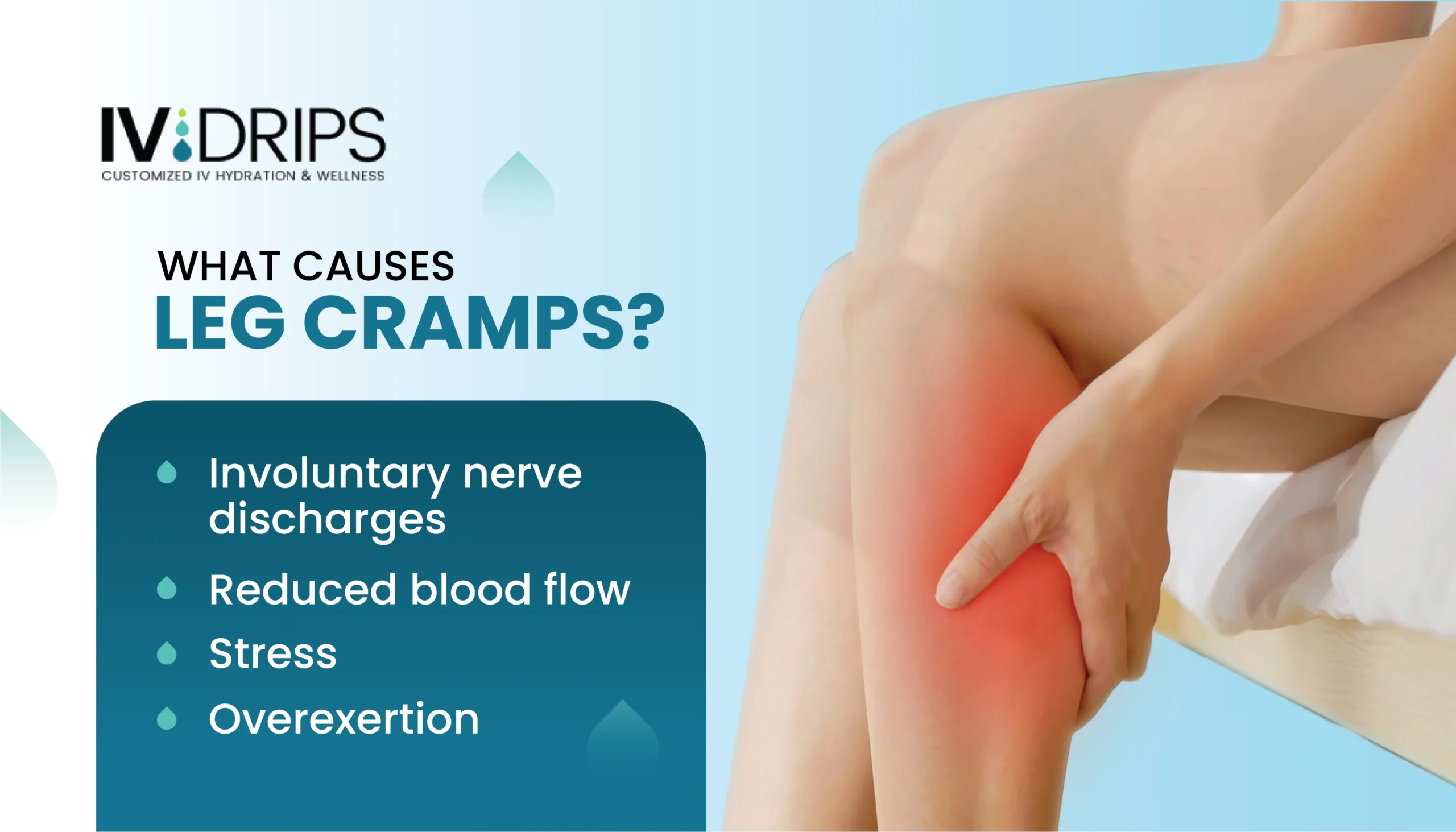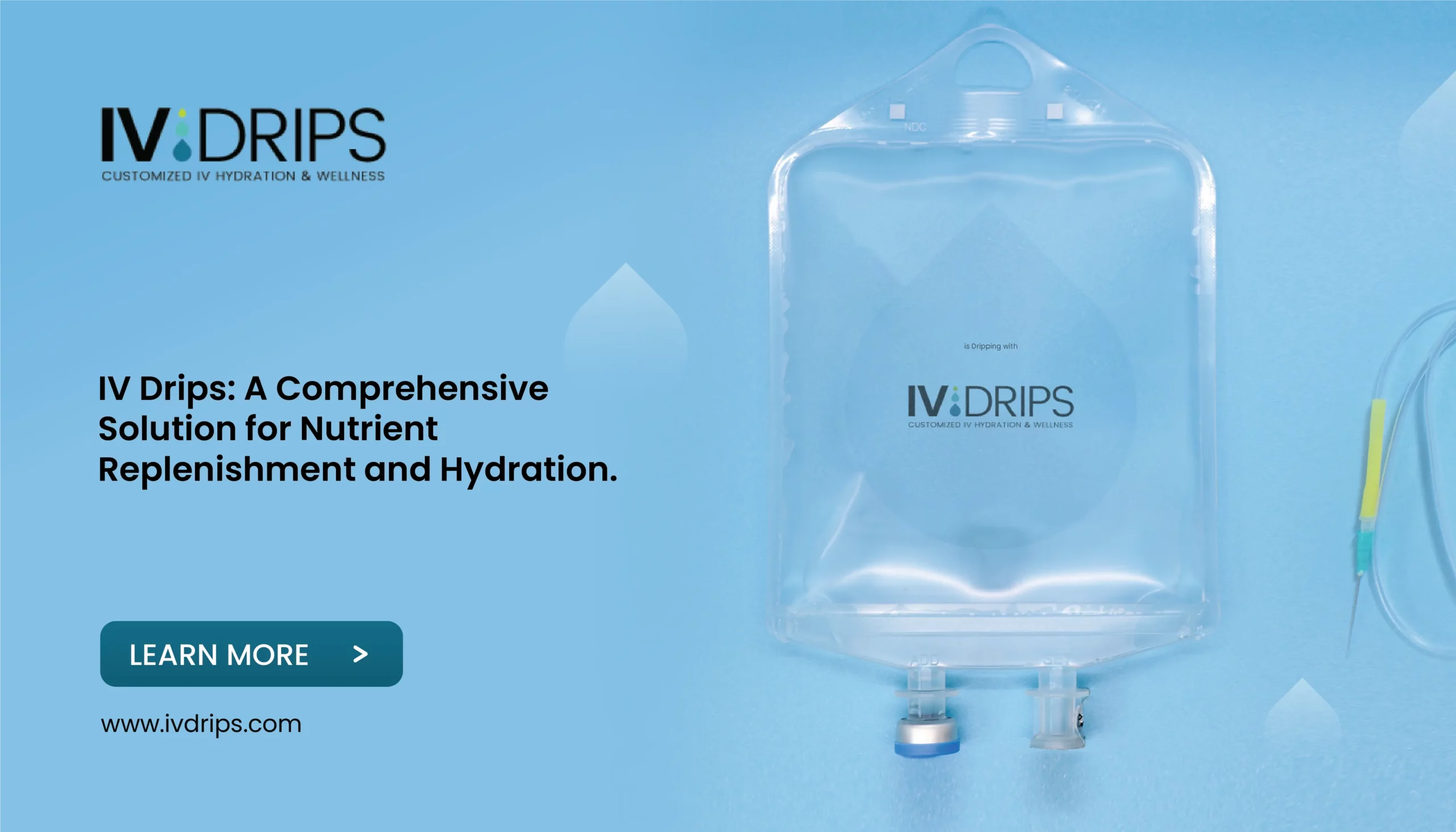
Vitamins for Leg Cramps: Top Nutrients to Relieve Discomfort
Leg cramps—that sudden, intense pain in your calf, thigh, or foot—often cause significant discomfort for many. Whether you’re a busy parent juggling work and family, a dedicated athlete, or someone with a more sedentary lifestyle, leg cramps can strike anyone anytime. Even the most dedicated fitness enthusiasts aren’t immune. But why? How can even the fittest among us experience these painful muscle contractions?
The answer often lies beyond simple fitness. It’s about nourishing your body with the proper nutrients. In this blog, we’ll delve into the science behind leg cramps, explore the role of essential vitamins and minerals, and provide practical tips for preventing and alleviating this common discomfort.
Understanding Leg Cramps
Leg cramps, which are sudden and intense pains resulting from involuntary muscle contractions, affect numerous people. These contractions, often accompanied by muscle rigidity, can occur during rest periods, overexertion, or even sleep, leading to disrupted sleep patterns and insomnia.1
What Causes Leg Cramps?

The exact science behind what causes these cramps remains elusive.1 Researchers believe some leg cramps occur without apparent cause, referred to as “idiopathic cramps.” Others may be triggered by a variety of factors, including:1
- Involuntary nerve discharges: Misfiring nerves can send signals to your muscles, causing them to contract involuntarily.
- Reduced blood flow: Inadequate blood supply to your leg muscles can deprive them of oxygen and nutrients, leading to cramps.
- Stress: Chronic stress can contribute to muscle tension and increase the likelihood of cramps.
- Overexertion: Engaging in intense exercise or overworking your leg muscles can lead to fatigue and cramping.
While these are some potential culprits, the good news is that there are effective strategies to manage and prevent leg cramps. One fundamental approach involves ensuring your body receives adequate amounts of specific vitamins and minerals.
So, let’s delve deeper into the role of essential nutrients in preventing and alleviating leg cramps. We’ll explore how you can optimize your diet and lifestyle to keep those unwelcome muscle contractions at bay.
How to Avoid Leg Cramps: Top 6 Nutrients to Combat Leg Cramps Effectively

While the exact cause of leg cramps remains a mystery, ensuring your body receives adequate amounts of specific vitamins and minerals can play a pivotal role in preventing or alleviating these painful muscle contractions.
Here are some of the essential nutrients that have shown promise in managing leg cramps:
- Magnesium: This muscle-relaxing mineral is crucial for muscle health and proper nerve function. If you’re prone to nighttime leg cramps, ensure adequate magnesium intake.
- Potassium: Working with magnesium is vital for maintaining proper muscle function and nerve signaling. Low potassium levels can lead to muscle weakness, spasms, and cramps.
- Calcium: An essential player in muscle contractions, calcium imbalances can trigger muscle cramps. Maintaining adequate calcium levels is crucial for overall muscle health.
- Vitamin D: This sunshine vitamin is important for bone health and aids in the absorption of calcium and magnesium. Low vitamin D levels have been linked to muscle weakness and cramps, making it particularly important for older adults to ensure sufficient intake.
- Vitamin E: While more research is needed, some studies suggest that vitamin E may improve blood flow and oxygen delivery to muscles, potentially reducing the occurrence of cramps.
- B vitamins: These B1 (thiamine), B6 (pyridoxine), and B12 are essential for energy production and efficient nerve function. Deficiencies in B vitamins can contribute to muscle weakness and cramping.
Having sufficient nutrients and vitamins for leg cramps can help your condition. Maintaining a balanced diet rich in leafy greens, nuts, seeds, bananas, dairy products, fish, and whole grains can proactively ensure your body receives these essential nutrients. However, we understand that life can get hectic, and keeping track of every nutrient and managing multiple supplements can be challenging.
Fortunately, there’s a more efficient and effective way to replenish these vital nutrients and address your overall hydration needs—IV drips have got your back.
IV Drips: A Comprehensive Solution for Nutrient Replenishment and Hydration
IV drips offer a direct and efficient way to deliver a concentrated dose of essential vitamins, minerals, and fluids directly into your bloodstream. This bypasses the digestive system, ensuring maximum absorption and utilization by your body.
Not only can IV drips help you replenish the specific nutrients associated with preventing leg cramps, but they can also address other potential deficiencies, boost energy levels, and support overall health and well-being.
An essential hydration IV drip typically contains:
- Electrolytes: Electrolytes are minerals that help to regulate fluid balance, muscle function, and nerve transmission.
- Vitamin B complex: Vitamin B complex is a group of eight essential vitamins for energy production, cell metabolism, and nervous system function.
- Magnesium: Magnesium is a mineral involved in over 300 biochemical reactions, including muscle function, nerve transmission, and blood pressure regulation.
- Zinc: Zinc is a mineral that is essential for immune function, wound healing, and cell growth.
So, what are you waiting for?
Posted on behalf of IVDrips











